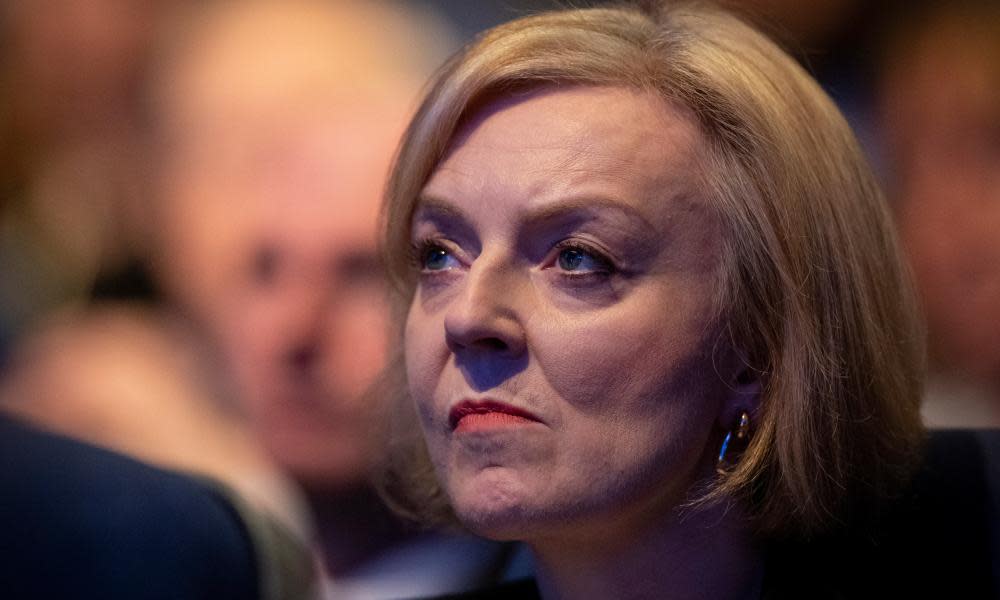The Guardian view on a Tory U-turn: the problem goes beyond tax

The public has lost faith with the Conservatives as a governing party that can deal with the cost of living crisis. That is why the Tories are in freefall in the opinion polls. Kwasi Kwarteng’s humiliating U-turn over plans to scrap the additional rate of income tax, which is 45% on pay over £150,000, will do little to restore confidence in Liz Truss’s team. The move will only sour the public mood and deepen doubts that the Tories can manage the economy – and steady wobbling household finances.
Mr Kwarteng’s speech to the Tory party conference had two audiences: the first was in the hall; the second was watching on television. In talking about “sound money” he conceded that his gung ho mini-budget was anything but sound. Blaming EU laws for holding the country back might receive a cheer from seated activists, but it will be met with yawns from the electorate. However, it was Mr Kwarteng’s blithe dismissal of the row generated by the 45% tax plan as “a little turbulence” that revealed how out of touch he is with the national mood. The jibe was nothing less than an affront to the millions of people already facing spiralling mortgage costs and rising rents.
The traditional wisdom is that an incoming government with an ambitious programme had better get the bulk of it through quickly as its popular mandate rapidly disappears. Ms Truss’s problem is that she has no wider mandate. No one can underestimate the ability of the government to blow itself up. Mr Kwarteng is a liability who ought to be dumped for the country’s sake. But Ms Truss has tied her fortunes, for the moment, to her chancellor’s. A more ruthless prime minister would have cut Mr Kwarteng adrift last week. The longer the pair remain lashed together, the longer the odds of this government surviving. That may be no bad thing.
The government’s mini-budget was a case of the Tories looking after their own: a message that the chancellor and the prime minister reinforced with policies that handed business a big tax cut and bankers bigger pay packets. This, the chancellor confirmed, will be paid for by further cuts of up to £18bn a year to the public services, which will do irreparable damage to the NHS, policing and schools. It looks likely that benefits would not be uprated in line with inflation amid the cost of living crisis: a callous policy that affects the poorest in society. Elections are not often won by telling voters they will have to pay more for less, and work longer into the bargain. No one can miss that the balance of tax and welfare changes is being tilted further in favour of the rich. The administration of Liz Truss does not think “we are all in this together”.
The chancellor’s argument is that these moves are good for growth. That might be true in the distant future. But they require the kind of legislative changes to, say, build homes on green fields that would provoke such a backlash among Tory MPs as to make them impossible to enact. What they do in the short term is hand money to richer households and shareholders. However, this is a tiny slice of the electorate. More and more of the public are feeling less secure about weathering the economic storm. Many voters won’t be forgiving if they lose their savings and then their disposable income because of rising housing, food and heating costs. Ms Truss and Mr Kwarteng offer no hope for the country. A failure to deliver even that, along with so much else, ought to prove their undoing.
Do you have an opinion on the issues raised in this article? If you would like to submit a letter of up to 300 words to be considered for publication, email it to us at guardian.letters@theguardian.com

 Yahoo Movies
Yahoo Movies 
